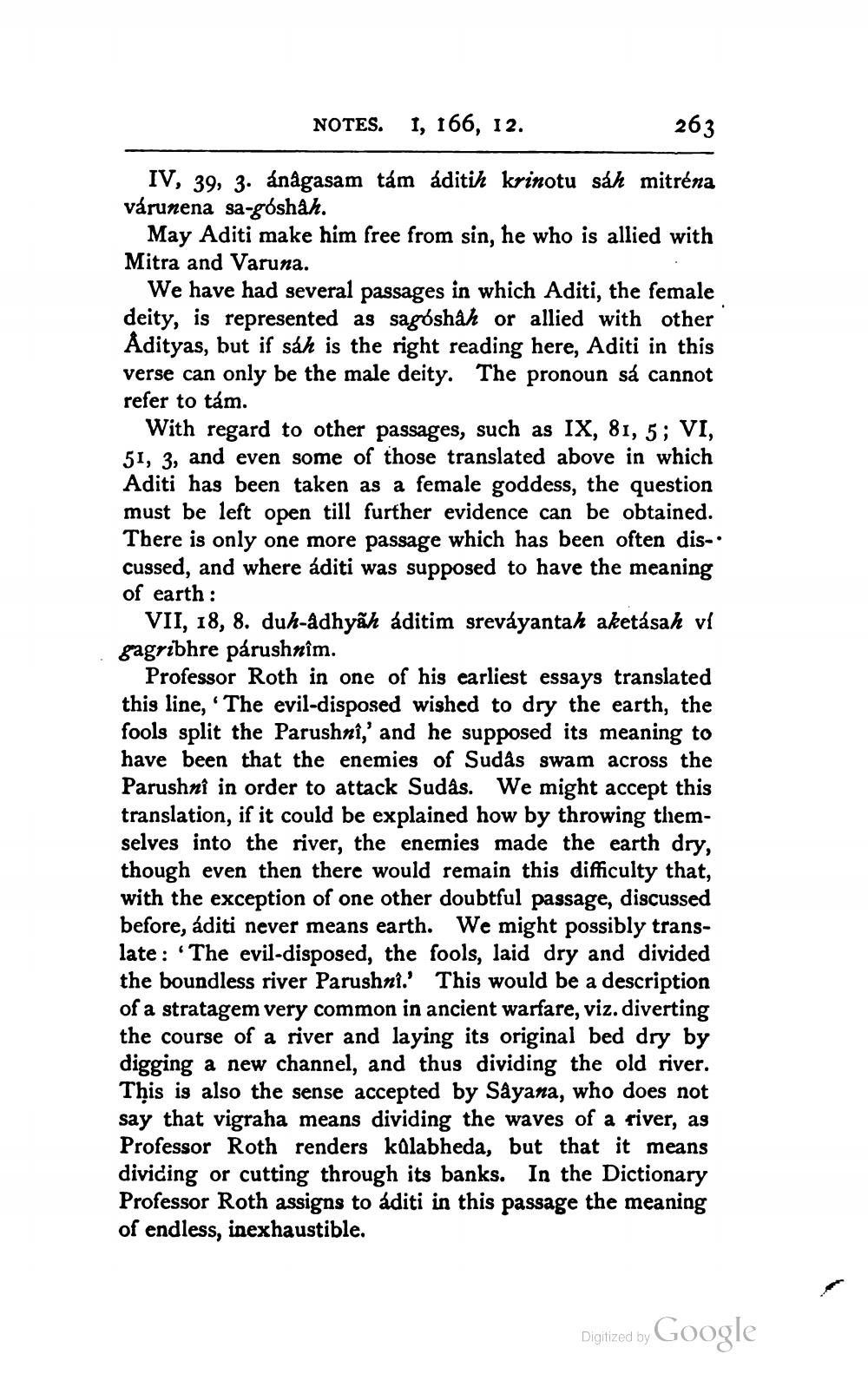________________
NOTES. 1, 166, 12.
263
IV, 39, 3. ánågasam tám aditih krinotu sáh mitrena várunena sa-góshah.
May Aditi make him free from sin, he who is allied with Mitra and Varuna.
We have had several passages in which Aditi, the female deity, is represented as sagóshåh or allied with other Adityas, but if sáh is the right reading here, Aditi in this verse can only be the male deity. The pronoun sá cannot refer to tam.
With regard to other passages, such as IX, 81, 5; VI, 51, 3, and even some of those translated above in which Aditi has been taken as a female goddess, the question must be left open till further evidence can be obtained. There is only one more passage which has been often disco cussed, and where áditi was supposed to have the meaning of earth:
VII, 18, 8. duh-adhyâh áditim sreváyantah aketásah vi gagribhre párushnim.
Professor Roth in one of his earliest essays translated this line, 'The evil-disposed wished to dry the earth, the fools split the Parushni,' and he supposed its meaning to have been that the enemies of Sudás swam across the Parushni in order to attack Sudas. We might accept this translation, if it could be explained how by throwing themselves into the river, the enemies made the earth dry, though even then there would remain this difficulty that, with the exception of one other doubtful passage, discussed before, áditi never means earth. We might possibly translate: The evil-disposed, the fools, laid dry and divided the boundless river Parushni.' This would be a description of a stratagem very common in ancient warfare, viz. diverting the course of a river and laying its original bed dry by digging a new channel, and thus dividing the old river. This is also the sense accepted by Sayana, who does not say that vigraha means dividing the waves of a river, as Professor Roth renders kalabheda, but that it means dividing or cutting through its banks. In the Dictionary Professor Roth assigns to aditi in this passage the meaning of endless, inexhaustible.
Digitized by
Digized by Google




